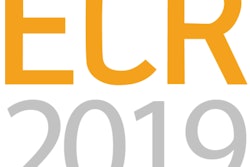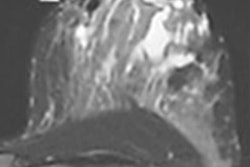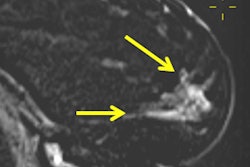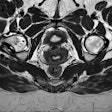
VIENNA - During a refresher course at ECR 2018, breast MRI expert Dr. Christiane Kuhl said the principles of evidence-based medicine have been misused in the case of preoperative breast MRI, and that's part of the reason why the modality hasn't been adopted more widely by the surgical community.
Kuhl, the clinical director for diagnostic and interventional radiology at Aachen University Hospital in Germany, spoke with passion about the modality and why its use hasn't been cemented in any guidelines. The first is cost and the second is availability. In fact, Kuhl said cost could be reasons No. 2, 3, and 4, but another reason also surfaced -- the misuse of information.
She cited the use of preoperative MRI of the rectum as an example. MRI is more accurate than endorectal ultrasound or CT to detect the infiltration depth of rectal cancer, and because it's more accurate, it is now in the guidelines. Every patient with a newly diagnosed rectal cancer will undergo MRI for local staging, she said.
"There is not a single piece of evidence that patients undergoing such MRI staging do better than those that undergo staging by CT or ultrasound," she said. "We have no evidence of outcome whatsoever because no one asked for it."
The only metric to determine whether preoperative MRI is used is its accuracy.
"Is the test more accurate than other tests we can use?" she said."And if it's more accurate, then please use it. That's the usual way to proceed. I have the personal impression that for breast MRI this simple principle has been abandoned for the very first time. People deliberately choose not to know about the true extent of a breast cancer. They do not use the best imaging test. Inconceivable."
She cited other fields such as orthopedic surgery or abdominal surgery where the surgeon won't operate without a preoperative MRI or CT scan, but the same is not true with breast MRI.
"It seems to me again that radiologists are so shy to simply say the truth," she said. "And the truth is that diagnostic information or diagnostic tests provide information. They do not provide treatment. That's what surgeons do or maybe oncologists. They provide information. It is very difficult to measure the impact of information or knowledge on the outcome on the patient."
It's difficult because the information and the outcome are different confounders -- the patient is treated by a surgeon or oncologist, but it is certainly an "undisputable fact that knowing of the true extent of a surgical disease is the single most important prerequisite for successful surgery. Full stop," she said. "So don't be fooled by people who seemingly are on the side of evidence-based medicine. It's just a misuse of the principles of evidence-based medicine."
Dr. Elizabeth Morris, past president of the Society of Breast Imaging (SBI) and a breast radiologist at Memorial Sloan Kettering Cancer Center in New York City, echoed Kuhl's comments during the session.
"I think we can learn from this, because I think we're not good stewards of our imaging technology," she said. "We allowed poorly designed trials to happen and then get out in literature as the only prospective trials that showed breast MRI did not work in the preoperative setting. And that was because they were poorly designed."
Radiologists need new trials like the Multicenter International Prospective Meta-Analysis (MIPA) that show the value of MRI in the preoperative setting in a carefully controlled way with radiological and surgical input.
"It's a complicated issue," she said. "No one understood how complicated it was when I think the initial trials were designed. And we have suffered because of it. I think patients have suffered. I think we should learn from this. We need to be better stewards."



















